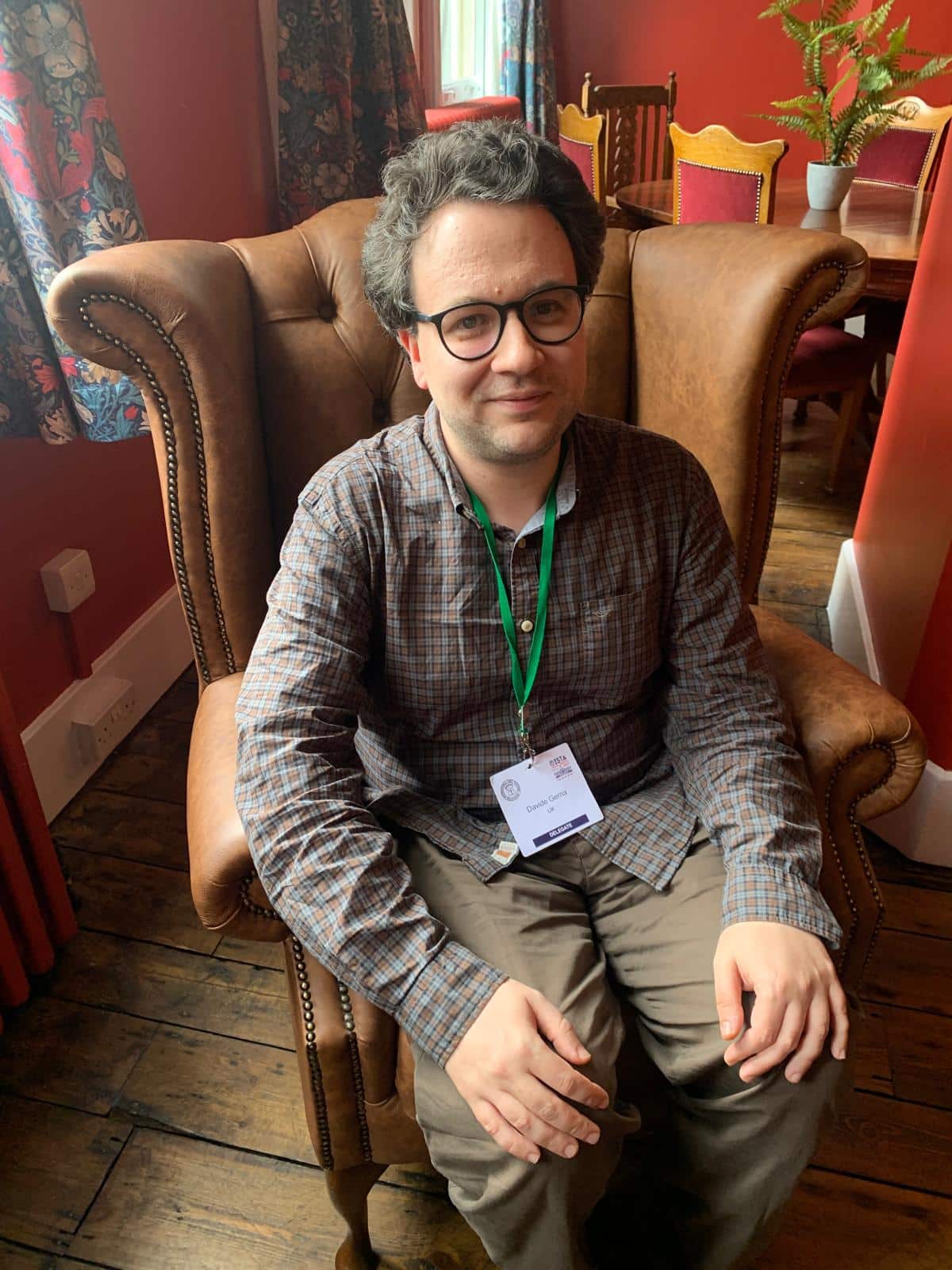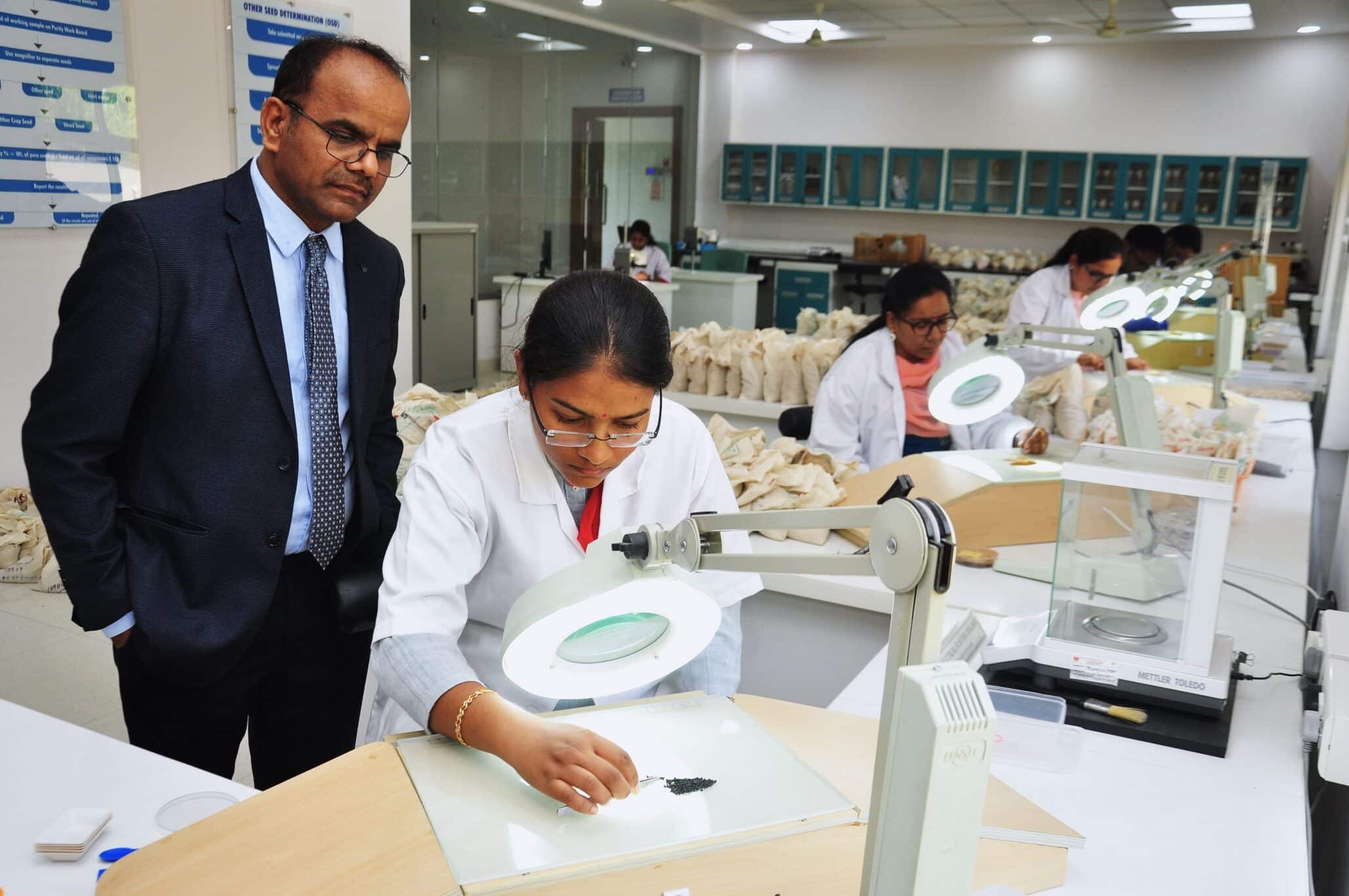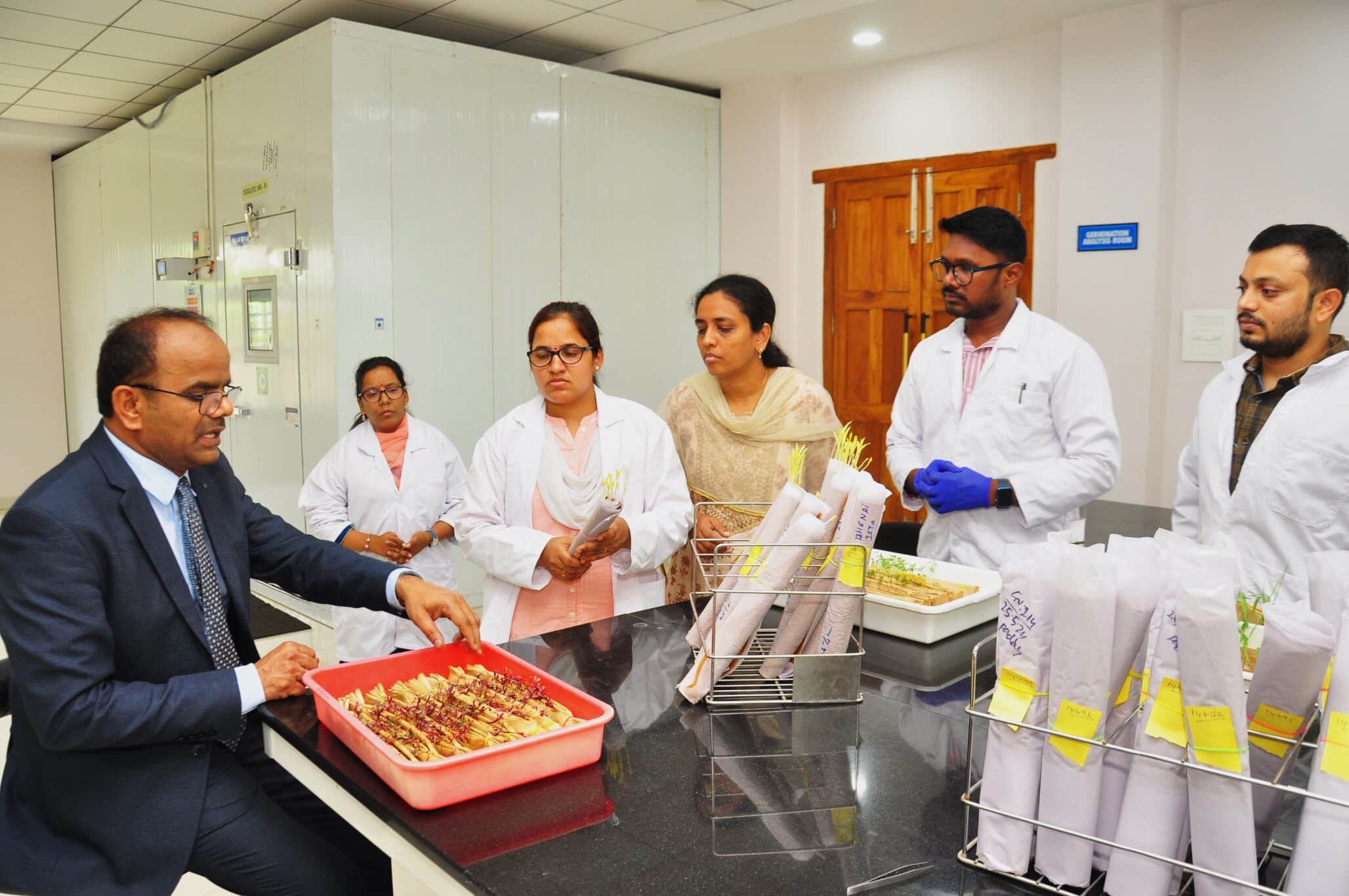The International Seed Testing Association’s Young@ISTA program focuses on building capacity by investing in a new generation of seedsmen.
Like every organization across every part of the seed sector and beyond, the International Seed Testing Association knows attracting the next generation — the talented professionals, researchers, analysts and scientists who will be willing and capable of carrying ISTA into the future — is a critical priority. Recognising that need, ISTA initiated a program in 2019 to support seed testing up-and-comers and spread ISTA’s messages to a demographic ISTA admits it hasn’t always been successful in reaching.
“Young@ISTA is a special program initiated by ISTA to attract talented professionals and researchers passionate about seed science and technology,” says Andreas Wais, ISTA’s secretary general. “This program aims to ensure the continuity of ISTA’s legacy by engaging individuals who can contribute to the Association’s mission, benefiting their home countries, organisations and personal career development. Through this program, ISTA seeks to expand its reach and share its knowledge with a wider audience globally.”
Young@ISTA’s key aims are to promote the young generation of seed professionals, encouraging them to become active in ISTA and empowering them to lead innovative solutions to meet the present and future challenges facing the seed industry.
The program offers one-time direct financial support for up to 15 young seed professionals per year to participate in ISTA events like workshops, trainings (including lab-to-lab training), annual meetings, congresses and conferences, as well as financial support for research publication. ISTA invests up to 25kCHF (approximately $28,000 USD) per year in the Young@ISTA program.
“The Young@ISTA program is so important for seed analysts to get experience things they might not otherwise get to experience – for example, training in much more developed international laboratories or taking part in technical workshops that might not be available in their home countries – to improve their technical skills, helping them grow in their work,” says Olga Stoeckli, ISTA’s events and membership manager.
The program also has impact far beyond the individual, she adds.
“Most of the applicants are from Africa and Asia. They are developing agriculture very fast in many African and Asian countries, so it important for them to get more professionally trained people in order to move their agriculture forward. The Young@ISTA program is also important because it helps laboratories to be accredited. Seed analysts get trained for quality assurance, and then they can help their labs get ISTA accredited.”
To be eligible to participate, applicants must be early in their career in the seed sector; ideally not older than 40 years of age. They should have a qualification in seed testing / sampling / science / technology, in allied subjects or in any relevant branches of agriculture, plant science or crop science, as well as a minimum of three years relevant work experience. Applicants should also have been involved in a previous ISTA activity, such as a poster presentation at one of the ISTA meetings or participation in a workshop, project or working group.
Seed research fellow Davide Gerna is attending the ISTA annual meeting this year thanks to the Young@ISTA program. Originally from Italy but currently based in England, Gerna says he is excited to experience the international and cross-disciplinary efforts so evident throughout the annual meeting.
He says the meeting is a unique opportunity to see how ISTA’s many Technical Committees approach key issues.
“In the end, the issues are the same in baseline research and industry too: we tackle the same questions from different approaches,” he says. “Being here at the ISTA meeting is great for me because I can get in touch directly with some committee members. It’s so much better to have face-to-face time rather than email. I really feel privileged to have this opportunity.”
He says his hope is that this experience is just the start.
“If I can keep the conversation going with the committee members, I think it could have impact on my career to be more involved in ISTA’s work on Technical Committees.”
ISTA supported 14 young seed professionals in 2022, 16 in 2023, and nine in 2024. Of this year’s applicants, two were based in Africa, four in Asia, two in Europe and one in South America. ISTA supported three of this year’s applicants to attend international workshops, two to attend the centenary annual meeting, one to attend training at an out-of-country laboratory, and five to have their scientific papers published in ISTA’s Seed Science Technology magazine.
On Day 2 of the ISTA Centenary Annual Meeting, we sat down with I-Cheng Chen, one of the young people who collaborated back in 2019 to start the Young@ISTA program. He says his path into seed testing was somewhat accidental, as he’d not only never considered seed testing as a career, but he’d also never even heard of it prior to getting his first job in the industry. He says it was the luckiest of accidents, however, given how much he’s valued being in seed testing and how critical it is to the world. Watch for a video of our chat, which will be available here and via Seed World’s social media soon.













